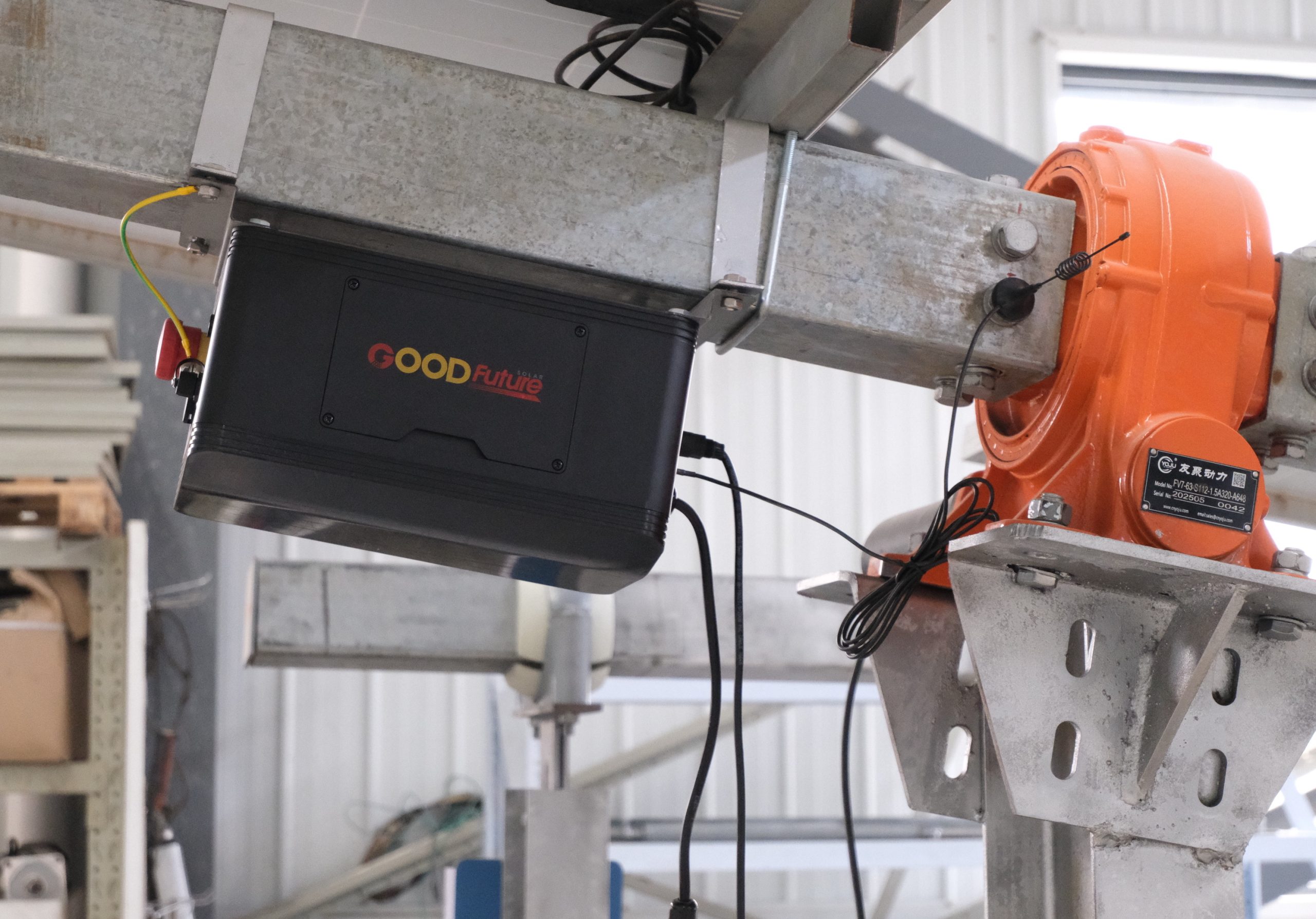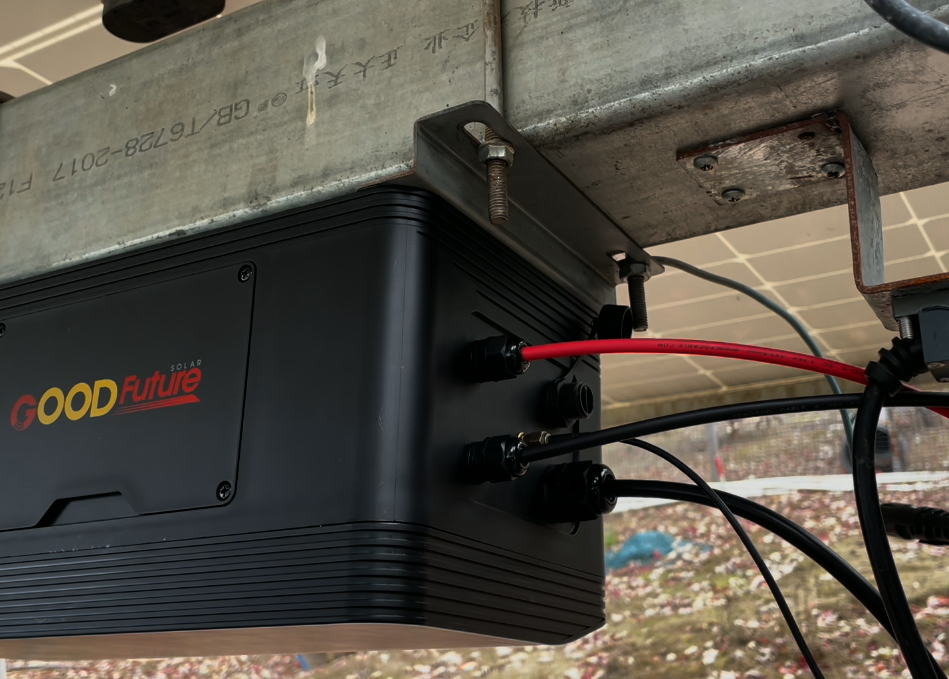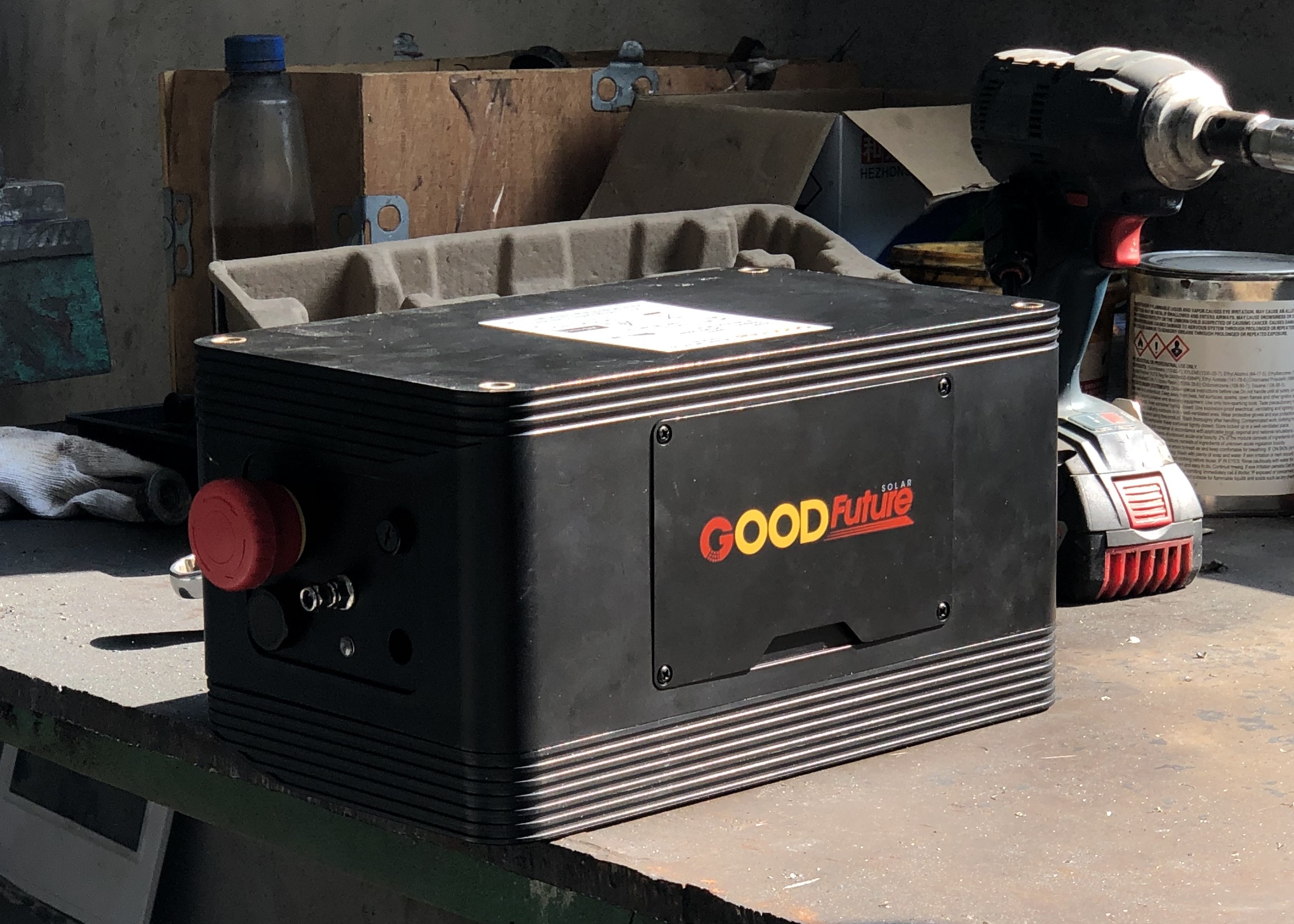Email:info@goodfuturesolar.com
Tel: +86-371-63966669
Email:info@goodfuturesolar.com
Tel: +86-371-63966669

In vast solar power plants, rows of tracking arrays move like “fields of sunflowers,” gracefully following the sun’s path. Behind this precise, smooth, and reliable motion lies the intricate electromechanical synergy between the Photovoltaic Tracker Controller (TCU) and the geared motor. Together, they form an intelligent closed-loop control system, ensuring consistently maximized energy output under complex and variable environmental conditions. The Brain and the Muscle: Defining the Roles of the TCU and Geared Motor First, let’s understand their core roles: TCU (Tracker Controller): Acts as the system’s “intelligent brain.” It calculates the optimal angle for the tracker array at any given moment based on astronomical algorithms, real-time weather data, and preset strategies. More crucially, it is responsible for directly driving and protecting the “muscle”—the geared motor. Geared Motor: Serves as the system’s “precision muscle and joint.” It converts the electrical signals from the TCU into precise mechanical rotation. Through its internal gearbox, it reduces speed and increases torque, providing sufficient force and appropriate speed to move the massive tracker structure smoothly. Their collaboration is not a simple “command-and-execute” process but a dynamic interaction filled with intelligent communication and real-time protection. The Core of Precision Tracking: How the TCU Manages the...

Discover why high-reliability cables are crucial for solar tracker systems. Learn about the benefits of UV-resistant, IP68-certified cables for long-lasting, safe PV installations.

Discover advanced solar tracker controllers enabling higher energy yield, precise tracking, weather protection, and smart PV plant operation.
Wondering if a single-axis solar tracker is right for your utility-scale project? This guide breaks down how it works, its key components, and benefits for maximizing ROI.
What Is Backtracking in Solar Tracking Controllers? A Complete Guide Understand how backtracking prevents row-to-row shading, boosts energy yield, and lowers LCOE for utility-scale solar projects. What is Backtracking? Backtracking is a control strategy used in solar tracking systems to avoid row-to-row shading during low sun angles (early morning and late afternoon). Instead of pointing modules directly at the sun, the tracker intentionally tilts slightly away so that the front row no longer casts shadows on the next row. This small angle adjustment often increases total energy yield because it prevents large shading losses that more than offset the imperfect sun-facing angle. How a Tracking Controller Performs Backtracking Modern tracker controllers compute backtracking decisions from a mix of inputs: Solar position (azimuth and elevation) — astronomical algorithms. Tracker geometry — row spacing, module width, standoff height. Site slope and terrain variations. Real-time or historical shading and performance data (when available). The controller continuously evaluates whether normal tracking or backtracking yields more energy and switches modes accordingly. Two Common Backtracking Algorithms 1. Standard Backtracking (Flat Terrain) Uses geometric formulas to detect potential shading and adjusts tilt angles to eliminate it. This is effective for large, flat utility sites where row geometry...
Comprehensive overview of solar tracking algorithms for PV controllers, including SPA, Bourges, Wang, and Grena. Learn recommended algorithms for different solar projects.